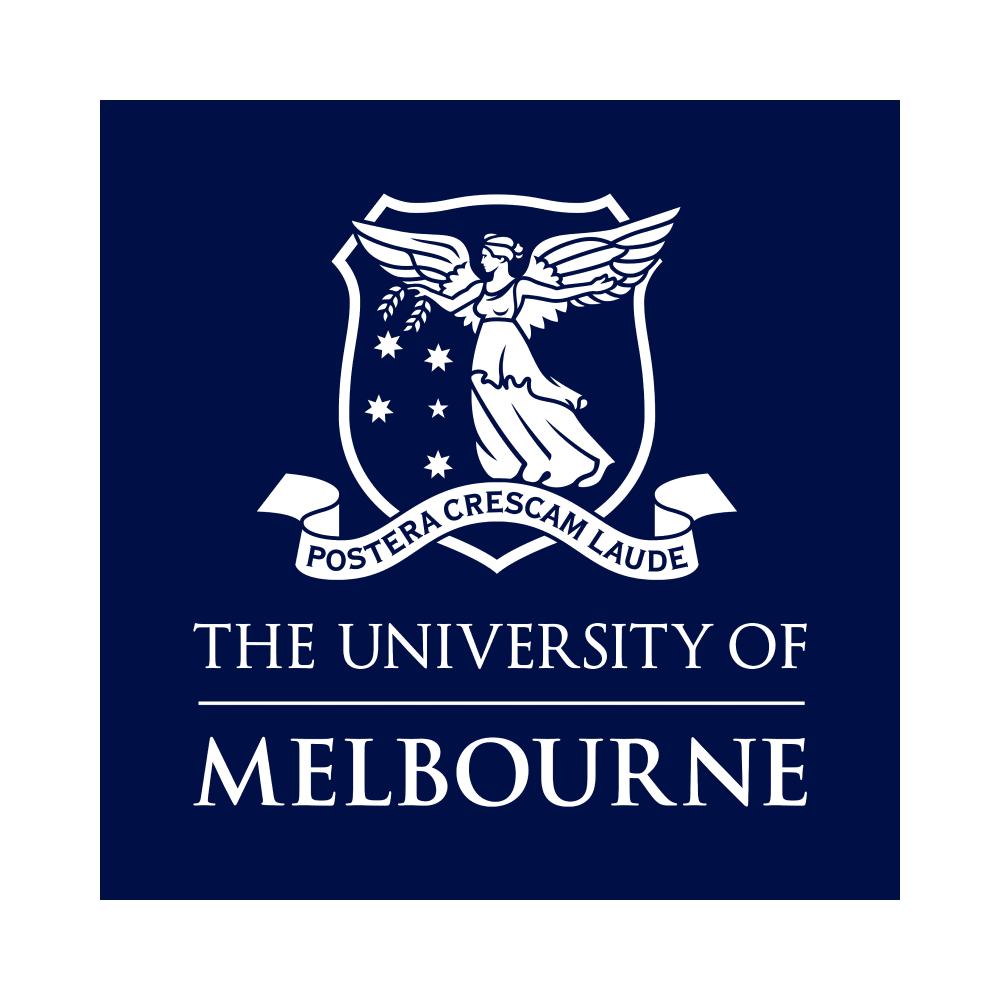
If you’re thinking about a career in digital marketing, you might already know it’s a rapidly growing field that is essential for businesses navigating today’s online landscape. But did you know just how relevant and in-demand digital marketers have become?
As more companies shift their focus to digital-centric customer communication, the need for proficient digital marketers is higher than ever. According to SEEK, the job outlook for digital marketers is incredibly promising, with roles projected to grow by more than 11 per cent over the next five years. This means now is the perfect time to explore the opportunities in this dynamic and exciting field.
What is digital marketing?
Digital marketing is the promotion of products or brands through digital media channels to connect with current and prospective customers. Digital marketers use platforms such as search engines, social media, email, websites and apps to reach their audience effectively. Their primary goal is to develop and implement strategies that enhance brand visibility, drive traffic and generate leads.
Some key responsibilities of digital marketers include:
- Developing marketing strategies: Crafting plans that align with business goals and leverage various digital channels.
- Managing content and campaigns: Overseeing the creation of content and the execution of advertising campaigns across social media, emails and websites.
- Tracking KPIs: Monitoring key performance indicators such as shares, impressions, conversions and email open rates to measure campaign effectiveness.
- Analysing campaign performance: Evaluating what worked and what didn’t to optimise future efforts and ensure resources are used efficiently.
Digital marketers may work with organic (free) or paid channels, using budgeted funds to achieve a return on investment (ROI). They aim to meet specific KPIs for each channel, allowing them to measure and adjust their strategies accordingly. In smaller companies, one digital marketer might manage multiple channels, while larger organisations often employ specialists for each channel.
Types of digital marketing
Digital marketing jobs encompass a variety of specialised fields. Different types of digital marketing involve different strategies and tools:
- Search engine optimisation (SEO): Optimising website content to improve search engine rankings through keyword research, on-page optimisation and building backlinks.
- Content marketing: Creating and distributing valuable content like blog posts, videos and infographics to attract and engage an audience and establish authority.
- Social media marketing: Using platforms like Facebook, Instagram and LinkedIn to build brand awareness, drive engagement and generate leads.
- Pay-per-click (PPC) advertising: Paying for ad placements on search engines and other platforms, where marketers bid on keywords and pay-per-click to drive traffic.
- Email marketing: Sending targeted email campaigns to nurture leads, promote products or services and build relationships. Key metrics are open rates, click-through rates and conversion rates.
- Affiliate marketing: Partnering with other businesses to promote products and earn commissions for sales or leads generated.
- Influencer marketing: Collaborating with influencers to leverage their credibility and reach in promoting products or services on social media and other platforms.
Why digital marketing is important in business
Digital marketing roles are more important than ever, especially as traditional media use declines. With nearly every potential client or customer online, the opportunities for businesses to connect with their audience are vast.
Digital platforms are integral to our lives and businesses must keep up. According to the Australian Marketing Institute, 95 per cent of Australians use the internet, and 86.5 per cent are active on social media. People aged 16 to 64 spend more than six hours online daily, with almost two of those hours on social media.
Here are a few reasons why digital marketing is key to today’s businesses:
- Wider reach: Digital marketing helps businesses connect with a global audience. Platforms like Facebook, with an ad reach of more than 16.65 million users, and Instagram, engaging three in five internet users, offer unparalleled brand exposure.
- Targeted advertising: Digital marketing precisely targets audiences using tools like Google Analytics to understand user behaviour and craft effective campaigns.
- Cost-effective: Often cheaper than traditional media, digital marketing allows budget allocation across various channels, maximising ROI. In Australia, digital advertising spend reached US$13.5 billion in 2023, making up 72.4 per cent of total ad spend.
- Measurable results: Tracking campaign success through key performance indicators like impressions, clicks and conversions enables data-driven strategy adjustments.
- Enhanced engagement: Platforms like Facebook, TikTok and Instagram foster direct audience interaction, building strong customer relationships and loyalty through engaging content and real-time feedback.
Beyond brand awareness, digital marketing also drives revenue and growth. Online sales and influencer marketing are on the rise. Social media is a powerful tool for reaching new audiences and enhancing credibility. The surge in TikTok usage, with nearly 10 million users and significant ad reach, shows its evolution into a powerful marketing channel.
Digital marketing careers
There are many career opportunities and digital marketing jobs available, each with unique responsibilities and work settings. Here are some key digital marketing roles to consider:
- SEO specialist
- Role description: An SEO specialist focuses on improving a website’s visibility on search engines. This involves keyword research, on-page optimisation and building backlinks.
- Responsibilities: Optimising website content, conducting keyword research, analysing website performance and developing strategies to improve search engine rankings.
- Work settings: Agencies, in-house teams or freelance.
- Functions: Marketing, publishing and branding.
- Social media manager
- Role description: A social media manager creates and manages content across social media platforms to build brand awareness, engage followers and drive traffic.
- Responsibilities: Developing social media strategies, creating content, managing social media accounts, engaging with followers and analysing performance metrics.
- Work settings: Agencies, corporate environments or freelance.
- Functions: Marketing, PR and branding.
- Digital marketing manager
- Role description: A digital marketing manager oversees a business’s digital marketing strategy. This role involves coordinating various digital marketing efforts to achieve business goals.
- Responsibilities: Developing and implementing digital marketing strategies, managing campaigns, analysing performance data and leading a team of digital marketers.
- Work settings: Corporations, agencies or start-ups.
- Functions: Marketing, strategy and management.
- Content marketing manager
- Role description: A content marketing manager focuses on creating and distributing valuable content to attract and engage a target audience.
- Responsibilities: Developing content strategies, overseeing content creation, managing a content team and analysing content performance.
- Work settings: Agencies and in-house teams.
- Functions: Marketing, publishing.
- Content strategist
- Role description: A content strategist plans and oversees the content creation process to ensure it aligns with business goals and audience needs.
- Responsibilities: Conducting content audits, developing content plans, coordinating with content creators and measuring content effectiveness.
- Work settings: Agencies, corporate environments or freelance.
- Functions: Marketing, publishing and branding.
- E-commerce specialist
- Role description: An e-commerce specialist manages online sales platforms and strategies to maximise revenue.
- Responsibilities: Managing e-commerce websites, developing online sales strategies, optimising user experience and analysing sales data.
- Work settings: Retail companies, e-commerce businesses or freelance.
- Functions: Marketing, sales and analytics.
- PPC specialist
- Role description: A PPC specialist manages pay-per-click advertising campaigns to drive targeted traffic to websites.
- Responsibilities: Developing PPC strategies, managing ad budgets, creating ad copy and analysing campaign performance.
- Work settings: Agencies, in-house teams or freelance.
- Functions: Marketing, analytics and strategy.
A day in the life of a digital marketer
Adam Stewart, founder of Digital Bond Marketing, moved from a career in business information systems and web development to digital marketing, eventually founding his own consulting business.
Here’s a breakdown of his typical work day:
- Early morning: “A typical day starts early with writing the key five things I’m going to focus on for today,” Stewart says. This helps him set clear priorities and goals for the day. With a fresh cup of coffee in hand, he dives into his inbox, responding to urgent emails and catching up on industry news.
- Morning: Next, Stewart reviews analytics and performance across different campaigns. Using tools like Google Analytics and social media data, he tracks how various campaigns are performing. “I review analytics and performance across different campaigns, like website traffic, conversion rates and engagement levels.”
- Mid-morning: By this time, Stewart is working on strategy sessions or in client meetings. Strategy sessions are crucial for developing new marketing strategies, refining existing ones and ensuring alignment with client goals. “Client meetings usually involve discussing campaign progress and planning future activities.”
- After lunch: Stewart dedicates time to content creation for his own business. “Afternoons are often dedicated to creating my own content, campaign optimisation or collaborating with my team on potential clients or campaigns.” This includes writing blog posts, creating social media content and developing marketing materials.
- Early afternoon: Stewart works on campaign optimisation for his clients, making adjustments based on the analytics reviewed earlier in the day. Collaboration with his team on potential new clients or campaigns also happens during this time.
- Afternoon: Afternoons mean collaborating with his team on new potential clients or campaigns. This is a creative and strategic part of the day, where ideas flow and plans are put into motion.
- Evenings: “Evenings at times involve client calls overseas or reviewing social content due to different time zones or reviewing and planning social content for the following days,” Stewart explains. This is also a time for him to catch up on industry trends and explore new tools and strategies.
Stewart’s advice to other digital marketers? “Networking within the industry and pursuing certifications can boost your credibility. Seek mentorship from industry leaders, attend conferences and actively contribute to relevant communities.”
Advance your digital marketing career with postgraduate studies
Whether you’re aiming for a leadership role or looking to deepen your expertise, a postgraduate course in digital marketing can provide you with the skills and knowledge needed to excel in this field.
Essential skills for aspiring digital marketers include proficiency in analytics tools, an understanding of SEO and search engine marketing (SEM) principles as well as strong copywriting and content creation abilities.
A postgraduate program in digital marketing enhances your ability to stay ahead of trends through units that cover the latest in digital marketing strategies and technologies. Plus, you can also learn to effectively manage a marketing team and drive your organisation’s marketing efforts.
Below are some examples of postgraduate courses in digital marketing available in Australia.


This course is specifically designed in consultation with industry to create world-ready graduates proficient in digital marketing knowledge and application. Confidence and competence in applying digital and social media knowledge and associated skills are crucial for all marketing professionals and those who own or manage a small to medium-sized business enterprise. Students will critique topical, current and relevant issues in modern-day marketing practice and learn how to think strategically about social and digital media. Students will also use industry-standard software and technology to apply these skills.
Some of the tools students will work with include Synthesio and Hootsuite for publishing, engaging and analysing social media content and trends; WIX for creating, publishing and managing website content; Google Analytics for analysing website performance; and Gaze Recorder for analysing the effectiveness of digital content on a website.


The Graduate Diploma of Business (Digital Marketing) will help you gain the in-demand digital skills, experience and insights necessary for success in this fast-paced industry.
Understand the data that drives customers behaviour, and how to implement data-driven decisions and drive real business change.
Explore topics such a consumer behaviour, marketing strategy development, and marketing tools and technologies.


Become a digital marketing expert
Navigate the fast-paced world of digital marketing with a Master of Digital Marketing at Melbourne University. Develop specialised knowledge and skills through a suite of advanced subjects. Gain hands-on experience with leading companies and explore how digital marketing theories apply in real-world business contexts. Graduate with in-demand skills, ready to step into this exciting and ever-changing profession.
Key Features
- Build digital marketing skills and knowledge. Develop expertise in social media marketing, channel management, content marketing, retail, metrics and analytics.
- Road test your new skills in the industry. Develop job-ready skills and build your professional networks with an industry internship in your area of interest.
- Learn from industry experts. Explore best-practice examples from industry thought leaders and learn from case studies presented by marketing professionals.
Prepare for your future in digital marketing
Postgraduate studies can equip you with the skills, knowledge and creativity needed to thrive in a digital marketing role. By combining practical experience with advanced academic training, you can develop a strategic mindset and leadership capabilities that will set you apart in this dynamic field.
If you’re ready to take the next step and advance your digital marketing career, a postgraduate course in digital marketing could be the key to unlocking new opportunities.



















